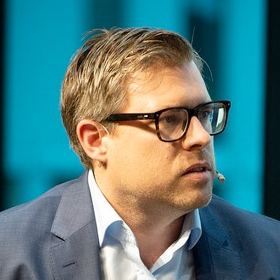Our lives are dominated by screens. They help us work, communicate, and unwind, but they also have a dark side. As we've shifted from big TVs to tiny phone screens, we've become even more attached to them. Social media apps, in particular, have proven to be highly addictive and have altered our way of living. But that's not all — they have also significantly impacted our brains. During this year's first HumanTech Meeting, we'll explore this thought-provoking topic and examine the effects of screens on the human brain.
How does social media impact the human brain?
Research shows that the average smartphone user checks their screen every 6 minutes, up to 150 times a day. We spend several hours each day using our phones. What are the consequences of this on our brains and their development? Should children be allowed to have smartphones? Is there a way to "fix" social media so that they provide more benefits than harm?
During this year's first meeting of the 2nd edition of HumanTech Meetings, we will talk about the risks of social media apps. Our keynote speakers will include: Professor Christian Montag from Ulm University and Anna Borkowska from the NASK National Research Institute. Dr. Konrad Maj, Head of the Center for Social and Technological Innovation HumanTech at SWPS University, will open the meeting. The lectures will be followed by a panel discussion moderated by Dr. Michał Boni.
Lectures will be held in a hybrid format, in Polish and English. Simultaneous translation will be provided for online viewers, and in-person attendees are advised to bring phones and headphones to access the translation.
The event is held under the auspices of Strefa Technologii (Technology Zone) of SWPS University
The meeting is a part of this year's edition of Brain Days, an annual popular science event organized by the NeuroPsyche Research Club during the Brain Awareness Week.
HumanTech Meetings
We live in an era of innovation, technological progress and digitalization. This current innovation drive may lead to unpredictable psychological and social outcomes. Therefore, it is crucial to establish collaborations between engineers, programmers, IT specialists and social scientists during initial phases of any new projects related to development of new technologies or services. Such collaborations may help to avoid mistakes and can support better development of new ideas.
The project is planned as a series of meetings, gathering academics and professionals from the technology sector from Poland and other countries. Each meeting will include two lectures, one delivered by a speaker from Poland and one presented by a guest from another country. The lectures will be followed by panel discussions, where panelists will represent different approaches to innovation and technology.
HumanTech Meetings is a project of SWPS University's Center for Social and Technological Innovation.
-
Christian Montag: Re-start social media, but how?
At this very moment, more than four billion people are using social media to stay informed and connected with their social networks. However, this access comes at a price — big tech companies require users to allow the monitoring and tracking of their behavior as part of a "data business model." This model has led to surveillance capitalism and all its adverse effects, including mental health issues, loss of privacy, and misinformation spread. This lecture will reflect on the power of social media platform design and corporate social responsibility and discuss potential solutions to the problems associated with the addictive nature of social media apps.
-
Anna Borkowska: The Smartphone Dopamine Pump: Why It Is Hard to Resist Social Media Apps?
Smartphones have evolved beyond their initial purpose of communication, with advancements in mobile technology and high-speed internet making them an essential tool for staying connected to the world. They provide unlimited access to information and entertainment, and it's difficult for most adults and teens to imagine life without them. However, researchers warn of their addictive potential and compare them to a dopamine pump that constantly stimulates us. This lecture will explore the Polish landscape of social media use, its impact on our functioning, and the cost we pay for being immersed in the world of "digital happiness."
Keynote Speakers

Christian Montag
Professor
Is a researcher at the intersection of psychology, neuroscience, behavioral economics, and computer science. He is particularly interested in digital phenotyping, mobile sensing, and digital biomarkers. Moreover, he studies technological use disorders and is dedicated to understanding how we can improve social media. Professor Montag authored more than 330 peer-reviewed articles published internationally. He serves on the editorial boards of various journals, including Personality Neuroscience, Molecular Psychology, Digital Psychology and Addictive Behaviors. He is also a co-editor of the Studies in Neuroscience, Psychology, and Behavioral Economics book series, published by Springer. His book Animal Emotions: How They Drive Human Behavior was published in 2020, followed by Du gehörst uns!, a popular science book on the data business model of technology companies creating social media platforms. His research and insights are frequently cited in popular media, including The New York Times, The Economist, Forbes magazines, and CNN television.

Anna Borkowska
Is a psychologist and digital education expert at the NASK National Research Institute. She specializes in early prevention of problem behaviors in children and adolescents, including aggression and peer violence, risks associated with the use of screen devices and the internet, and disorders of adolescence. She authored several training programs for educators, psychologists, and teachers, as well as publications on cybersecurity. She's also a co-author of the study Pozytywny internet i jego twórcy (Positive Internet and its Young Creators) and the report FOMO 2022. Polacy a lęk przed odłączeniem (FOMO 2022: Poles and the Fear of Disconnection). Anna Borkowska collaborates with various organizations, including the University of Warsaw, the Foundation for the Development of the Education System (FRSE), the National Centre for the Prevention of Addictions, and the Institute of Mother and Child.
Organizer
Center for Social and Technological Innovation HumanTech
Partners
Date and location
March 12, 2022 (Sunday), 15:00–18:00 CET (UTC+1)
SWPS University in Warsaw, Chodakowska 19/31, room S306 and online
Contact
E-mail: This email address is being protected from spambots. You need JavaScript enabled to view it.

In 2021, the HumanTech Meetings project was granted an additional PLN 250,000 (EUR 52 828,75) by the Ministry of Education and Science (MEiN), as part of the funding scheme “Społeczna odpowiedzialność nauki – Popularyzacja nauki i promocja sportu” (Social responsibility of science – Popularization of science and sport), (project no. SONP/SN/514650/2021), project duration: 2022-2023, total value: PLN 305,472 (EUR 65 251,67).